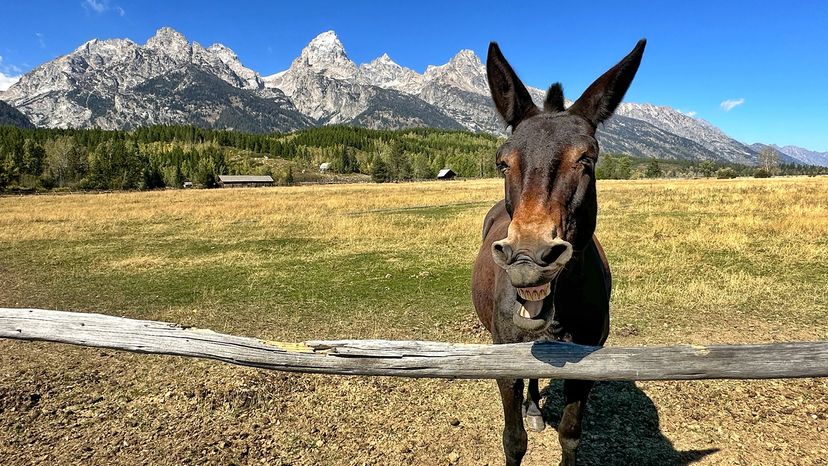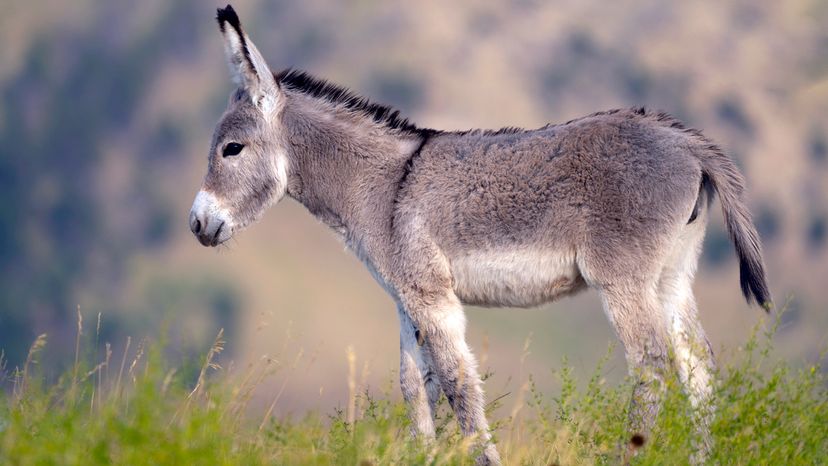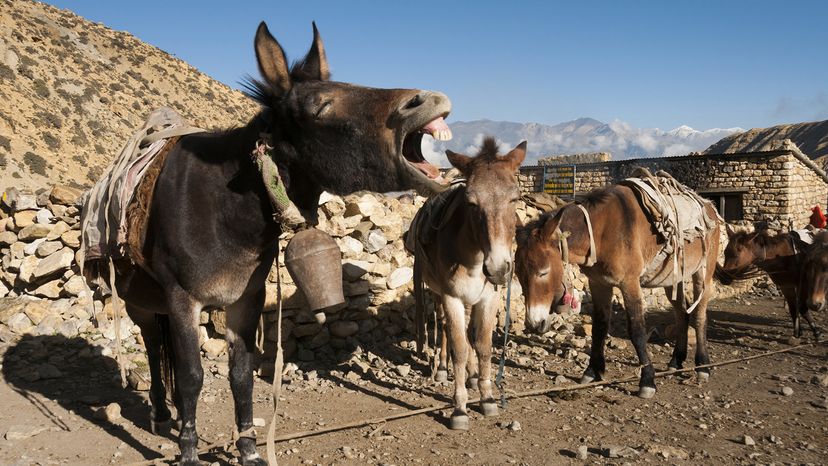In terms of survival in the wild, mules are highly capable. Their long ears and keen senses make them alert to predators, much like donkeys, while their horse-like endurance allows them to cover long distances without tiring.
However, because mules are sterile, they can't form wild populations on their own. In the wild, a solitary mule would have to join a herd of horses or donkeys to ensure protection and socialization.
While mules can fend for themselves, they thrive best in human-managed environments like farms or wilderness expeditions. Mules comfortably carry heavy loads across rough terrain, which is why they've been used for centuries in military campaigns, farming and long-distance travel.
Their adaptability in various environments has cemented their role in many cultures, particularly in the American West, where the American Donkey and Mule Society has kept their legacy alive [source: ADMS].
We created this article in conjunction with AI technology, then made sure it was fact-checked and edited by a HowStuffWorks editor.


